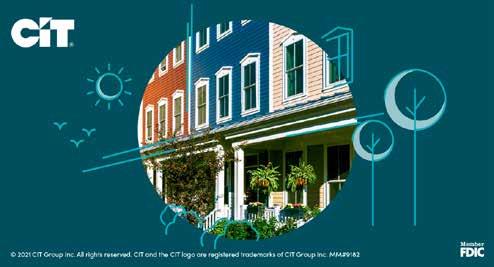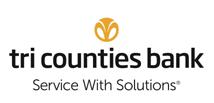
9 minute read
Welcome to Our New Professional Service Providers
NEW PROFESSIONAL SERVICE PROVIDERS
WELCOME TO OUR
New Professional Service Providers
Baydaline &
Jacobsen LLP is a boutique law firm whose practice focuses exclusively on general counsel representation to community associations. We have over 17 years practicing community association law and are managed by the principal partners Rod A. Baydaline and Jennifer M. Jacobsen. Collectively, the team at Baydaline & Jacobsen has over 40 years of combined experience specializing in the representation of homeowners associations as general corporate counsel. The firm handles a variety of legal issues and challenges facing community associations. As relationship specialists, the firm seeks immediate and long-term effective strategic solutions that are riskaverse and results-oriented. Our attorneys understand the complex issues affecting master associations which include subassociation community boards of directors and the rights and responsibilities of each entity. We represent all types of “common interest developments” including condominium projects, planned developments and stock cooperatives as defined in the Davis-Stirling Common Interest Development Act.
As the regional leaders of this specialized and unique area of law, members of this firm serve on the prestigious CACM Legal Steering Committee. The attorneys of Baydaline & Jacobsen are regular contributors to professional publications addressing the concerns of common interest developments. Additionally, our attorneys lecture on common interest developments for the Lorman speaker series and have been invited to speak in various other forums, engagements and seminars throughout California and Nevada.
Raihane A. Dalvi, Esq. (415) 677-4219 | rdalvi@bayjaclaw.com bayjaclaw.com
Flanagan Law, APC
is a boutique law firm exclusively dedicated to the representation of homeowners associations. We are a full-service HOA law firm, meaning that we provide general counsel, enforcement litigation, assessment collections services, board trainings and everything in between for our HOA clients. It is our firm’s philosophy that legal advice should be as brief as necessary to identify issues and to provide the board and manager with sensible options to help manage the community. Our attorneys are responsive and efficient in providing legal advice. Our firm’s mission is to provide HOA legal communities with top notch legal advice combined with a personal and individualized service. We are dedicated to our client’s best interests and our commitment to provide the highest quality legal services.
Our involvement in organizations like Echo is important to us because we believe that board members and homeowners need to be apprised of ever-changing laws and issues that arise with the HOA. This ongoing education will help to better HOA communities throughout the state.
Tim Flanagan, Esq. (619) 480-3100 | tim@flanaganhoalaw.com flanganhoalaw.com
QUICK & EASY RESOURCE FOR HOA BOARDS & HOMEOWNERS
Check Out Our Professional Service Provider Online Directory!
Quick and easy access to more than 200 industry providers who support HOAs and Echo.
Visit www.echo-ca.org and click on Professional Directory
CIT COMMUNITY ASSOCIATION BANKING


CIT’s Community Association Banking business is a national leader in providing individualized service, customized technology, smart savings solutions and operational efficiency for homeowner associations (HOA) and community association management companies nationwide. The business’ banking solutions include operating and reserve accounts, certificates of deposit, money market accounts, online banking, payments services and HOA loans. For more information on Community Association Banking, see cit.com/CAB.
CIT is a leading national bank focused on empowering businesses and personal savers with the financial agility to navigate their goals. CIT Group Inc. (NYSE: CIT) is a financial holding company with over a century of experience and operates a principal bank subsidiary, CIT Bank, N.A. (Member FDIC, Equal Housing Lender). The company’s commercial banking segment includes commercial financing, community association banking, middle market banking, equipment and vendor financing, factoring, railcar financing, treasury and payments services, and capital markets and asset management. CIT’s consumer banking segment includes a national direct bank and regional branch network. Discover more at cit.com/about.
6114 La Salle Avenue, 3613 Oakland, CA 94611 (925) 963-9733 www.CIT.com/CAB
As associations continue to navigate through the do’s and don’ts of assessment collection during this historic time, it is important to review their assessment collection policy and timely follow it. Also, the association must set its payment plan standards and apply them equally to all members regardless of circumstances. The rule of thumb is “what the association does for one, it must do for all.”
The legislature continues to propose bills that seek to establish moratoriums that restrict or limit delinquent assessment collections. For example, some may propose no judicial or nonjudicial foreclosure for extended periods, as well as no evictions, garnishments, or bank levies. At the time of this writing, there are no restrictions on recording a notice of delinquent assessment lien against a property; therefore, associations are strongly encouraged to continue recording liens to protect their interests.
What should the association do right now?
Successful collection begins with a good collection policy. The policy is the go-to document for collection guidelines and should be based on current laws as well as the association’s covenants, conditions, and restrictions (CC&Rs).
Carefully follow the assessment collection policy: • Consistently following the collection policy will eliminate delinquencies from getting out of control; the smaller the debt, the easier it is to collect. Establish a pre-collection timeline: • 30 days – Add a friendly reminder on the billing statement that the account is delinquent. This is a very costeffective way to alert the owner of the delinquency. • 60 days – Mail one courtesy delinquency notice that gives the owner 10 days to pay in full to avoid the account going into collections. More than one courtesy notice is ineffective, prolongs the collection process, and increases the unsecured debt.
• 70 days – Wait five (5) additional days past the courtesy notice due date. This allows extra time in case a payment is crossing in the mail.
• 75 days – Send the debtor to collections and add the issue to the board meeting agenda. When the board approves the recording of the lien by majority vote, record and approve it in the minutes of the meeting.
Make sure the payment plan standards are reasonable for the owner and that they protect the association membership from having to take on additional financial hardship by recording a lien.
Establish payment plan standards: • Standards must be equally followed by all members, regardless of their circumstances.
• Standards must be in writing for the benefit of all parties and, at a minimum, they should include terms and conditions: start date, payment due date, length of time, monthly payment amount, what happens if the owner defaults, and when a lien will be recorded.
• Establish the length of time, based on the owner’s stated ability to pay; however, reserve the association’s right to reevaluate the plan at any time. The most common payment plans run between 2 and 12 months but can be as long as 24 months, depending on the delinquent balance and the dollar amount of regular assessments that accrue during the payment plan.
• Require a notice of delinquent assessment lien to be recorded to secure the debt against the property on any payment plan that exceeds two (2) months.
– Civil Code §5665. Payment Plans. (d)
Payment plans shall not impede an association’s ability to record a lien on the owner’s separate interest to secure payment of delinquent assessments.
• Late fees will not be added to the account if the payment is received by the due date. If the owner requests that the late fees already assessed to the account be written off, they should not be written off until the end of the payment plan and only if the owner makes all the payments on time. This assures that the write-off is based on the action of the owner’s timely payments throughout the plan.
– Civil Code §5665. Payment Plans. (c) …
Additional late fees shall not accrue during the payment plan period if the owner is in compliance with the terms of the payment plan.
California Civil Code not only allows liens to be recorded when a payment plan is necessary, it also allows the association to recover the costs of collection.
• Interest will be added to the account during the period of the payment plan. If the owner requests that interest not be charged during the plan and/or that the already assessed interest be written off, it should not be written off until the end of the payment plan and only if the owner makes all payments on time. This assures that the write-off is based on the action of the owner’s timely payments throughout the plan.
– Civil Code §5660. Pre-Lien Notice … (b) … and interest, if any.
• Collection charges incurred by the association will be included in the payment plan.
– Civil Code §5660. Pre-Lien Notice … (b) fees and reasonable costs of collection, reasonable attorney’s fees, any late charges, and interest, if any.
• If the payment plan is in default, the association may resume its efforts to collect the delinquent assessments.
– Civil Code §5665. Payment Plans. (e) In the event of a default on any payment plan, the association may resume its efforts to collect the delinquent assessments from the time prior to entering into the payment plan.
“DO” MEET WITH AN OWNER TO DISCUSS A PAYMENT PLAN, IF REQUESTED
Plain and simple, the law requires the board to meet with an owner. Meeting with the owner does
TRI COUNTIES BANK
Financial Solutions Designed for Property Management Companies

Remote Deposit Capture
Tri Counties Bank’s Remote Deposit Capture allows you to scan checks and transmit digital images to the bank from your office. Make deposits when it is most convenient for you.
Fraud Protection with Positive Pay
Positive Pay provides secure, powerful tools to improve reporting and reduce your risk of check and ACH fraud.
Purchasing Cards
Improve purchasing management, reduce costs, prevent fraud and streamline payment processes.
Reserve Cash Solutions
Use a Money Market Account to earn a competitive interest rate on funds set aside for future capital expenditures or to earn interest on otherwise idle funds.
Running a homeowners association or a property management company can be demanding. Tri Counties Bank allows you to focus on serving your clients while they focus on helping you with banking. It’s all part of a unique brand of Service With Solutions® , a come-to-you style of relationship banking built to last for years.
For more than 45 years, Tri Counties Bank has helped California companies of all sizes grow and thrive with customized financial solutions:
Business Lending
Tri Counties Bank offers customized lending solutions including lines of credit, longterm loans, commercial real estate loans, equipment loans and leases and auto loans with local knowledge, service and support.
Trico Treasury Center
Tri Counties Bank’s online banking platform includes a user-friendly dashboard summarizing your accounts, along with robust reporting and communication tools plus additional features to enhance your online banking experience.
Lockbox Service
Collect receivables more quickly and easily with Tri Counties Bank’s Lockbox service. Flexible service allows payments to be processed and credited to your account faster with the imaging technology and fast reporting you expect. Options include electronic data files, check images, paper reports and downloading payment history directly to accounts receivable software.
Operating Account Solutions
Manage receivables and payables with an account balance credit to minimize cost of services.






